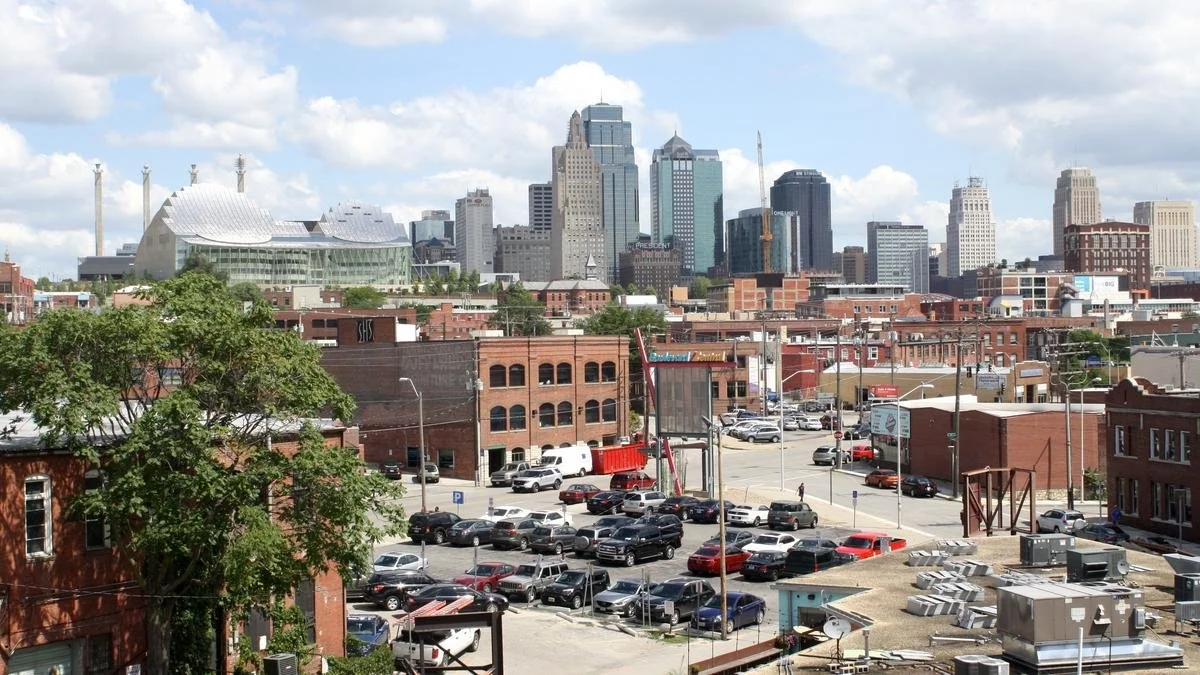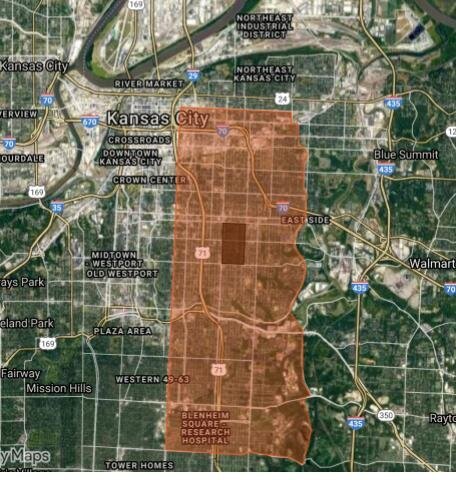Mission.
LocalCode Kansas City builds wealth and wellbeing on Kansas City’s Eastside through community-centered real estate development. Combining regenerative development principles with long term local ownership and control, we are strengthening the economic heart of our community.
Why.
Historically, real estate development across the United States has been characterized by exclusionary practices that are racist and extractive in their impact – whether by design or by effect. Combined with redlining, racist covenants, exclusionary zoning, and blockbusting, these practices solidified into formidable structural inequities.
Over time, many cities became largely segregated and witnessed ever increasing disparities in wealth and quality of life for communities of color. The impact on these communities is evidenced by vacant commercial properties, outdated manufacturing facilities, dilapidated housing stock, substantially lower per capita income, and the inadequate access to services – particularly education and healthcare service providers. On top of this, the vast majority of commercial and residential real estate is externally owned. Through rents and real estate appreciation, this effectively transfers wealth outside the community. Compounding the problem, when investments do come in, they often accelerate this transfer through displacement of longtime residents.
Shifting this dynamic is at the heart of addressing the structural inequities plaguing our nation and its citizens. It is not a nice-to-have, it is essential for any real change to happen.
In Kansas City, Troost Avenue was chosen as the dividing line between the haves and have nots, between white and black. The impacts on the people living on KC’s Eastside (east of Troost Ave) are devastating.
Principles.
LocalCode champions the principles of regenerative development, based on whole systems thinking and rooting development in place. The organization helps affiliated local developers integrate these principles throughout their operations, from project site selection and design to continuous community engagement and recruitment from within the community for project leadership. Other development practices that LocalCode promotes to its partners include transit-oriented development, the integration of renewable energy generation, green space, and designing for energy efficiency and low operating costs post construction.
"From the inside out," community engagement as a never ending practice
Leadership from within the community
Mentorship and collaboration between local leaders and development practitioners
Mission aligned financing with a non-extractive appreciation rate
Community equity and ownership built into the operating model
Anti-displacement built into operations and engagement throughout the project neighborhood
Regenerative design and development
Impact.
Addressing Community Needs
As all projects are driven by local leaders and community stakeholders, our impact KPIs are developed based on specific community needs and therefore are hyper-local to the project neighborhood. We are accountable to these community stakeholders and provide 100% transparency, providing open books quarterly reporting.
Building Community Wealth & Wellbeing
LocalCode Kansas City’s goal is $1 billion in locally owned real estate on KC’s Eastside within one generation. This dramatic shift in ownership will generate wealth for community member-owners. Increased wealth will improve their lives in countless ways, including education, health, public safety, and almost every measure of wellbeing in a community, as documented by organizations such as the Federal Reserve Bank of New York, the Robert Wood Johnson Foundation, the Urban Institute, and The Aspen Institute via its Financial Security Program.
LCKC will monitor neighborhood scale data and has the goal of a 10%+ improvement in wealth and wellbeing metrics for the communities where our projects are located within ten years. This is achievable due to the size and nature of LCKC projects, and the catalytic impact they can have on the community.




